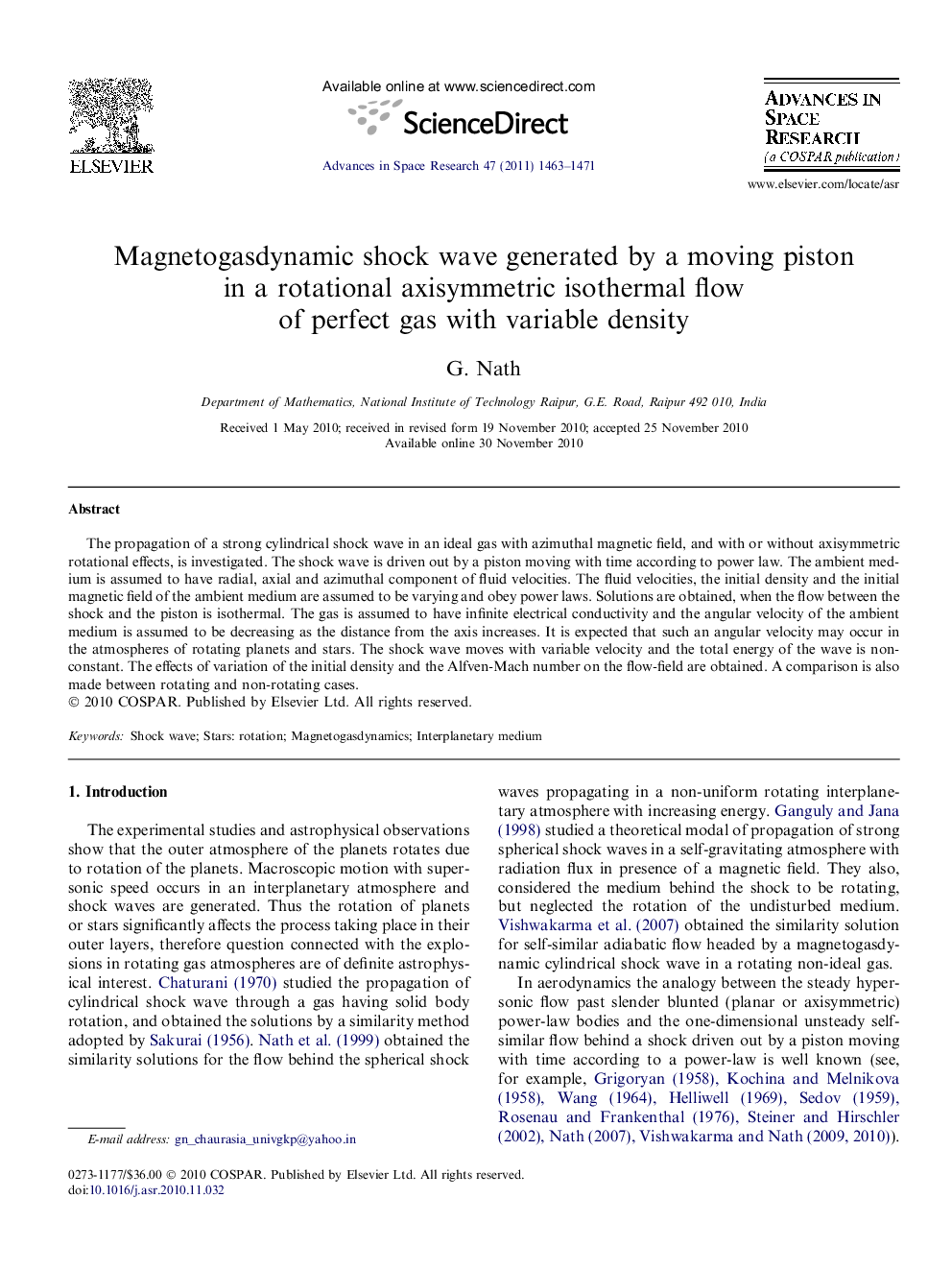| Article ID | Journal | Published Year | Pages | File Type |
|---|---|---|---|---|
| 1765717 | Advances in Space Research | 2011 | 9 Pages |
Abstract
The propagation of a strong cylindrical shock wave in an ideal gas with azimuthal magnetic field, and with or without axisymmetric rotational effects, is investigated. The shock wave is driven out by a piston moving with time according to power law. The ambient medium is assumed to have radial, axial and azimuthal component of fluid velocities. The fluid velocities, the initial density and the initial magnetic field of the ambient medium are assumed to be varying and obey power laws. Solutions are obtained, when the flow between the shock and the piston is isothermal. The gas is assumed to have infinite electrical conductivity and the angular velocity of the ambient medium is assumed to be decreasing as the distance from the axis increases. It is expected that such an angular velocity may occur in the atmospheres of rotating planets and stars. The shock wave moves with variable velocity and the total energy of the wave is non-constant. The effects of variation of the initial density and the Alfven-Mach number on the flow-field are obtained. A comparison is also made between rotating and non-rotating cases.
Related Topics
Physical Sciences and Engineering
Earth and Planetary Sciences
Space and Planetary Science
Authors
G. Nath,
